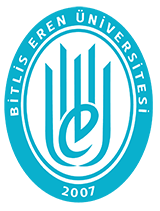| dc.contributor.author | Çağirkan, Bariş | |
| dc.date.accessioned | 2021-12-15T10:44:46Z | |
| dc.date.available | 2021-12-15T10:44:46Z | |
| dc.date.issued | 2018 | |
| dc.identifier.issn | 1308-2922 | |
| dc.identifier.issn | 2147-6985 | |
| dc.identifier.uri | https://app.trdizin.gov.tr/makale/TXpJME1qYzVPUT09/modernizm-ve-postmodernizm-baglaminda-milliyetciligin-aidiyet-algisi-uzerine-etkisi | |
| dc.identifier.uri | http://dspace.beu.edu.tr:8080/xmlui/handle/20.500.12643/2612 | |
| dc.description.abstract | Modernizm ve postmodernizm genel olarak iki farklı toplum yapısına vurgu yapmaktadır. Modernizm bütüncül bir anlayışıtemel alırken, postmodernizm yerellikler ve çoğulculuğu temel almıştır. Modernizm ile birlikte milliyetçilik ve etnisite toplumsalkurumlar | |
| dc.description.abstract | Modernism and postmodernism emphasise the social structure of two different societies. While modernism is based on a
holistic understanding, postmodernism is based on locality and pluralism. In addition to modernism, nationalism and ethnicity
have become | |
| dc.language.iso | Turkish | |
| dc.source | Pamukkale Üniversitesi Sosyal Bilimler Enstitüsü Dergisi | |
| dc.title | Modernizm Ve Postmodernizm Bağlaminda Milliyetçiliğin Aidiyet Algisi Üzerine Etkisi | |
| dc.identifier.issue | 33 | |
| dc.identifier.startpage | 387 | |
| dc.identifier.endpage | 392 | |
| dc.identifier.doi | 10.30794/pausbed.394669 | |
| dc.identifier.volume | 0 | |














